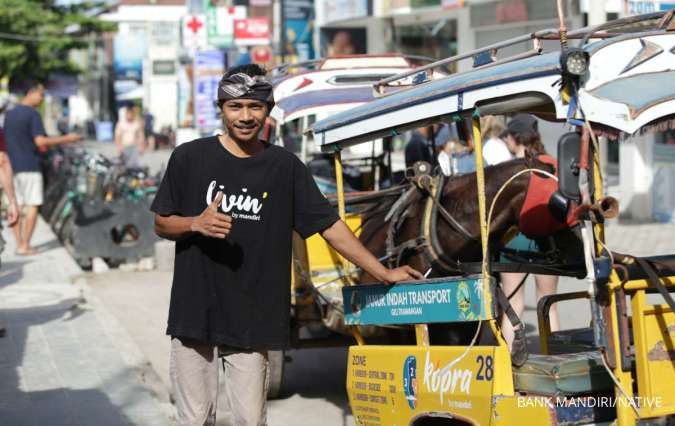JAKARTA. A free trade agreement (FTA) inked by the Association of Southeast Asian Nations (ASEAN), Australia and New Zealand is supposedly a deal without any restrictions. But the Indonesian government vowed on Tuesday to remain protective of local markets to ensure they remain competitive amid the full implementation of the deal that will see import tariffs slashed to zero.Agriculture Minister Suswono said the government would put in place non-tariff protection measures to help prevent local farmers from being heavily impacted by the inflow of imports from Australia and New Zealand. “We’ll still protect our products so that they will remain competitive in the local market,” said Suswono, who is also a senior politician from the Islamic-based Prosperous Justice Party (PKS). “Our codex standards, halal labeling, and sanitary and phytosanitary standards [SPS] are still feasible as instruments for protection, especially for food items that will enter Indonesia,” he said. Codex standards and SPS are codes of practice and guidelines relating to food, food production and food safety. Indonesia is the last ASEAN member-state to join the ASEAN-Australia-New Zealand FTA after several business groups called for a delay in ratifying the deal out of concern for losses to local businesses.The FTA deal was sealed on Feb. 27, 2009, in Phetchaburi, Thailand, at the 14th ASEAN Summit, but it was not until Tuesday that Indonesia fully implemented the deal.Concern is rife among local businesses that the FTA will particularly hurt cattle breeders, dairy and vegetable producers as Australia and New Zealand are already known as having economies of scale in those areas of business. Indonesia has often fallen victim to non-tariff barriers imposed by advanced countries, including Australia and New Zealand, as they applied high SPS standards. Indonesian mangoes and mangosteen, for example, have difficulties entering Australia due to tight SPS measures despite the already low tariff for the commodities. Chairperson of the Indonesian Chamber of Commerce and Industry’s (Kadin) agriculture market development committee, Karen Tambayong, expressed worries over the impact of the deal, particularly for horticulture farmers.“We are not ready [for this deal] as our local horticulture producers are still facing many problems at home, ranging from poor seeds to lack of financial support. These should be the homework for the government to ensure we can compete,” she said. Indonesia’s export of horticulture commodities was valued at US$289.55 million during the January-August period last year, while imports totaled $1.10 billion, according to the Agriculture Ministry.But unlike others, Indonesian Footwear Association secretary general Binsar Marpaung said that local footwear makers saw an opportunity resulting from the FTA. According to Binsar, local footwear manufacturers can increase their export share to Australia to 2.5 percent from the current 1.5 percent, and boost their share of exports to New Zealand to 1 percent.“Our footwear exports to Australia and New Zealand are still low. We expect the FTA will increase our sales there as we can better compete with our Chinese rivals,” he said. Tariff-free Indonesian products in Australia Rubber and rubber products (from 5-7.5%), wood and wood products (5-7.5%), paper (5-7.5%), furniture (5-7.5%), iron and steel (5%), textile and textile products (5-17.5%), leather products (17.5%), footwear (10%).
Row looms over half-hearted FTA
JAKARTA. A free trade agreement (FTA) inked by the Association of Southeast Asian Nations (ASEAN), Australia and New Zealand is supposedly a deal without any restrictions. But the Indonesian government vowed on Tuesday to remain protective of local markets to ensure they remain competitive amid the full implementation of the deal that will see import tariffs slashed to zero.Agriculture Minister Suswono said the government would put in place non-tariff protection measures to help prevent local farmers from being heavily impacted by the inflow of imports from Australia and New Zealand. “We’ll still protect our products so that they will remain competitive in the local market,” said Suswono, who is also a senior politician from the Islamic-based Prosperous Justice Party (PKS). “Our codex standards, halal labeling, and sanitary and phytosanitary standards [SPS] are still feasible as instruments for protection, especially for food items that will enter Indonesia,” he said. Codex standards and SPS are codes of practice and guidelines relating to food, food production and food safety. Indonesia is the last ASEAN member-state to join the ASEAN-Australia-New Zealand FTA after several business groups called for a delay in ratifying the deal out of concern for losses to local businesses.The FTA deal was sealed on Feb. 27, 2009, in Phetchaburi, Thailand, at the 14th ASEAN Summit, but it was not until Tuesday that Indonesia fully implemented the deal.Concern is rife among local businesses that the FTA will particularly hurt cattle breeders, dairy and vegetable producers as Australia and New Zealand are already known as having economies of scale in those areas of business. Indonesia has often fallen victim to non-tariff barriers imposed by advanced countries, including Australia and New Zealand, as they applied high SPS standards. Indonesian mangoes and mangosteen, for example, have difficulties entering Australia due to tight SPS measures despite the already low tariff for the commodities. Chairperson of the Indonesian Chamber of Commerce and Industry’s (Kadin) agriculture market development committee, Karen Tambayong, expressed worries over the impact of the deal, particularly for horticulture farmers.“We are not ready [for this deal] as our local horticulture producers are still facing many problems at home, ranging from poor seeds to lack of financial support. These should be the homework for the government to ensure we can compete,” she said. Indonesia’s export of horticulture commodities was valued at US$289.55 million during the January-August period last year, while imports totaled $1.10 billion, according to the Agriculture Ministry.But unlike others, Indonesian Footwear Association secretary general Binsar Marpaung said that local footwear makers saw an opportunity resulting from the FTA. According to Binsar, local footwear manufacturers can increase their export share to Australia to 2.5 percent from the current 1.5 percent, and boost their share of exports to New Zealand to 1 percent.“Our footwear exports to Australia and New Zealand are still low. We expect the FTA will increase our sales there as we can better compete with our Chinese rivals,” he said. Tariff-free Indonesian products in Australia Rubber and rubber products (from 5-7.5%), wood and wood products (5-7.5%), paper (5-7.5%), furniture (5-7.5%), iron and steel (5%), textile and textile products (5-17.5%), leather products (17.5%), footwear (10%).


